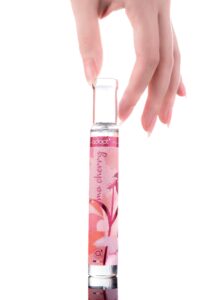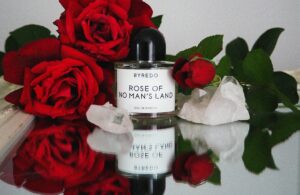Fragrances play a powerful role in shaping first impressions. Much like clothing, they reflect personality and style. In the world of perfumery, there’s a growing debate between niche and designer brands. Which truly delivers quality and creativity?
Industry experts, like Bertrand Duchaufour, emphasize the importance of creative freedom in crafting unique notes. Designer brands often dominate the market, but niche houses are gaining traction for their innovative accords. Both have their merits, but are they equally valued?
We’ll explore how the fragrance industry balances artistry and commerce. From award-winning creations to everyday essentials, understanding the nuances helps us make informed choices. Let’s dive into the trends, myths, and processes behind these captivating products.
Key Takeaways
- Fragrances significantly influence first impressions.
- Niche and designer brands offer distinct creative approaches.
- Expert insights highlight the importance of innovation in perfumery.
- Exploring both types helps identify personal preferences.
- Understanding the industry enhances informed decision-making.
Setting the Stage: The Perfume Hype and Cultural Impact
Our scent choices often speak louder than words, shaping how others perceive us. Fragrance is more than just a personal preference; it’s a reflection of identity and style. In today’s world, the aroma we wear can leave a lasting mark on those we meet.
How Fragrances Shape First Impressions
When meeting someone new, the first thing we notice is often their scent. A well-chosen fragrance can convey confidence, warmth, or sophistication. Studies show that people form lasting judgments based on olfactory cues, making our scent choices a powerful tool for self-expression.
For example, Kalemat Amber Oil is known for its dense, sweet aroma, leaving a memorable impression. Such unique notes help individuals stand out in a crowd, reinforcing the importance of selecting the right fragrance.
The Rise of Niche Perfume Houses
In the early 2010s, the beauty industry saw a shift with the emergence of niche perfume houses. These brands, like Arabian Oud and Solstice Scents, focus on artisanal craftsmanship and innovative accords. Unlike designer brands, niche houses prioritize creativity over mass appeal.
For instance, Mughal Amber Oud evokes the dry, parched scent of a desert, offering a unique olfactory experience. This approach has transformed the industry, appealing to those seeking something beyond traditional offerings.
| Brand | Key Note | Unique Feature |
|---|---|---|
| Kalemat Amber Oil | Sweet, Dense | Memorable Aroma |
| Mughal Amber Oud | Dry, Woody | Desert-Inspired |
| Solstice Scents | Incense Blends | Artisanal Craftsmanship |
The influence of community discussions and online reviews has also played a significant role in the popularity of niche brands. Platforms like this one provide insights into unique fragrances, helping consumers make informed choices.
Whether it’s a designer classic or a niche creation, the right fragrance can enhance our presence and leave a lasting impression. Exploring these options allows us to find the perfect scent that aligns with our personality and style.
Navigating Trends in the Perfume Industry
Today’s fragrance market is a mix of timeless classics and bold new creations. The industry has seen a shift where designer brands meet innovative niche formulations. This blend of tradition and creativity has reshaped how we think about scents.

From Designer Classics to Niche Innovations
Designer fragrances have long dominated the market with their iconic notes and widespread appeal. Brands like Chanel and Guerlain continue to set standards with their elegant compositions. However, niche houses are gaining traction for their unique and artisanal approaches.
For example, Kilian Love, Don’t Be Shy combines marshmallow and orange blossom for a gourmand profile. This innovative blend appeals to those seeking something beyond traditional offerings. Similarly, Pacifica Island Vanilla offers a creamy, smoky vanilla note, catering to a broad audience.
Consumer behavior has also evolved. Many now prioritize creativity and quality over mass appeal. Reviews and community discussions play a significant role in shaping preferences. Platforms like Pure Luxes provide insights into unique fragrances, helping consumers make informed choices.
| Brand | Key Note | Unique Feature |
|---|---|---|
| Chanel | Grapefruit, Lemon | Versatile for all occasions |
| Kilian | Marshmallow, Orange Blossom | Gourmand Profile |
| Pacifica | Vanilla | Budget-Friendly |
Another trend is the blending of synthetic and natural ingredients. This approach ensures quality and repeatability, meeting consumer demands for consistency. As the industry evolves, it’s clear that both designer and niche brands have a place in the world of fragrances.
Whether you prefer a classic designer scent or a bold niche creation, understanding these trends helps you find the perfect fragrance. Explore more about fragrance trends and discover what aligns with your style and personality.
Overhyped Scents, Popular Perfume Myths, Worth the Price?
The fragrance industry is filled with misconceptions that often cloud our judgment. Many believe that only natural ingredients make a perfume valuable, but experts disagree. Synthetic components can be just as effective, offering consistency and creativity in formulations.

Debunking Common Perfume Myths
One common myth is that higher prices always mean better quality. While some designer brands charge a premium, their products aren’t always superior. Niche brands often deliver unique notes and innovative blends at competitive prices.
Another misconception is that natural ingredients are always safer or more effective. In reality, synthetic materials allow perfumers to create consistent and long-lasting fragrances. This balance of natural and synthetic elements ensures quality and repeatability.
Examining Price Versus Quality in Fragrance
Price doesn’t always reflect the true value of a perfume. Some high-end brands focus on marketing rather than craftsmanship. On the other hand, niche houses often prioritize creativity, earning awards for their unique woody or floral blends.
Consumer reviews play a significant role in shaping perceptions. Platforms like Pure Luxes provide insights into the world of fragrance, helping buyers make informed choices. By understanding these nuances, we can better assess what truly matters in a perfume’s formulation.
The Art and Science Behind Perfume Creation
Crafting a fragrance is a delicate blend of artistry and scientific precision. It’s a process where creativity meets chemistry, resulting in scents that evoke emotions and memories. Master perfumers like Bertrand Duchaufour emphasize the importance of this balance, ensuring each note is both unique and harmonious.
Creative Freedom in Scent Formulation
Perfumers enjoy immense creative freedom when designing a perfume. They draw inspiration from personal experiences, cultural nuances, and even nature. This freedom allows them to experiment with unconventional combinations, crafting scents that stand out in the world of fragrance.
For instance, a woody base note might be paired with floral or citrus top notes to create a balanced yet surprising profile. This approach ensures that each brand offers something distinct and appealing to a wide range of preferences.
Expert Techniques and Unique Accord Blends
Creating a memorable fragrance requires expert techniques. Perfumers often use layering to build complex accords. These accords are the heart of the perfume, giving it depth and longevity.
For example, Kilian Love, Don’t Be Shy combines marshmallow and orange blossom for a gourmand profile. Similarly, Burberry Hero explores themes of duality with its cedarwood base. These techniques highlight the skill and innovation behind each creation.
| Technique | Example | Result |
|---|---|---|
| Layering | Kilian Love, Don’t Be Shy | Gourmand Profile |
| Accord Blending | Burberry Hero | Duality Theme |
| Raw Material Selection | Byredo Sundazed | Citrus and Floral Harmony |
Understanding these techniques helps us appreciate the craftsmanship behind every fragrance. Whether it’s a designer classic or a niche creation, the art and science of perfume-making continue to captivate and inspire.
Impact of Marketing and Hype on Perfume Perception
The allure of a fragrance often begins with its branding and packaging. In a crowded market, how a perfume is presented can significantly influence our perception. From elegant bottles to compelling stories, marketing plays a pivotal role in shaping our choices.

How Branding Influences Our Fragrance Choices
Branding goes beyond just a logo or a name. It’s about creating an emotional connection. Designer brands like Chanel and Dior excel at this, crafting narratives that evoke luxury and sophistication. Their campaigns often highlight heritage and craftsmanship, making their fragrances feel timeless.
Niche houses, on the other hand, focus on exclusivity and innovation. Brands like Byredo and Le Labo emphasize artisanal quality and unique notes. Their minimalist packaging and storytelling appeal to those seeking something beyond the mainstream.
Consumer psychology also plays a role. Reviews and awards can sway opinions, making certain perfumes seem more desirable. Platforms like Fragrance Foundation Accords provide insights into trends, helping buyers navigate the world of fragrance.
Ultimately, marketing and branding create a perception of value. Whether it’s a designer classic or a niche creation, the story behind the scent often determines its success. By understanding these tactics, we can make more informed choices in our fragrance journey.
Insights from Industry Experts and Consumer Reviews
Understanding the world of fragrances requires insights from both creators and users. Master perfumers like Bertrand Duchaufour bring unparalleled expertise, while consumer reviews offer real-world perspectives. Together, they shape our understanding of what makes a perfume truly exceptional.
Perspectives from Master Perfumers and Fragrance Enthusiasts
Master perfumers emphasize the importance of creativity and precision. Bertrand Duchaufour, for instance, highlights how unique notes can transform a fragrance into a memorable experience. Their expertise ensures that each creation is both innovative and harmonious.
On the other hand, fragrance enthusiasts provide valuable feedback on longevity and sillage. Reviews often highlight how a perfume evolves over time, from its top notes to its base. This real-world input helps others make informed choices.
For example, Chanel Coco Mademoiselle is praised for its staying power, while Maison Margiela Replica Jazz Club is celebrated for its versatility. These insights bridge the gap between expert craftsmanship and consumer experience.
Community discussions also play a significant role. Platforms like Pure Luxes offer detailed reviews and recommendations, fostering a shared appreciation for fragrances. This collaborative approach helps shape trends and preferences.
Whether it’s an award-winning creation or a niche discovery, both experts and users contribute to the evolving narrative of perfume quality. By listening to their perspectives, we gain a deeper appreciation for the art and science behind every bottle.
Conclusion
Finding the right fragrance is a journey of discovery and personal expression. Throughout this article, we’ve explored how both niche and designer brands offer unique notes and creative approaches. While marketing can shape perceptions, it’s essential to focus on quality and personal preference.
We encourage you to explore a variety of options, from award-winning creations to hidden gems. Use expert insights and community reviews as guides, but trust your instincts. Your personal experience will always be the best judge of what works for you.
As the world of fragrance continues to evolve, we invite you to join the conversation. Share your thoughts, discoveries, and favorite scents with our community. Together, we can uncover the true artistry behind every bottle.




